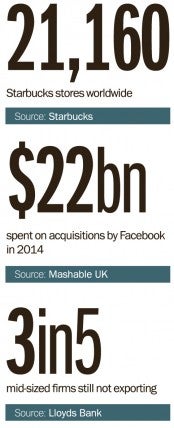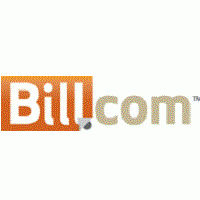Critics call it whack-a-mole, after the fairground game where you hit pop-up furry critters with a giant rubber hammer. Facebook’s strategy to stay the world’s number-one social network is based on buying up rivals, no matter what the cost.
Instagram cost $1 billion to whack. A high fee for a firm with zero revenue and 12 employees? With 30 million users, Facebook couldn’t take the chance of it developing. WhatsApp cost Facebook $18 billion. Again, this was a pre-revenue firm. With 450 million users it was even more of a threat than Instagram, so it got whacked. Lightbox, Glancee and Oculus Rift have been whacked. A $3-billion bid for Snapchat was turned down.
The strategy is working. Facebook is valued at $73 billion and hasn’t been challenged, yet. That’s the golden rule of strategy. If it works, it is a great strategy.
Strategy is the fun part of business – it’s when the company sets out where it is going and how it is going to get there. Execution is about sweat, drive and getting up at six in the morning, or as the wildly successful and recently departed boss of Thomas Cook travel agent, Harriet Green, preferred 3.30am. Strategy is about grand visions.
The online gambling industry was originally dominated by one man with a strategy to undercut his rivals. Gamblers are numerate folk, often obsessing about a small percentage advantage. Victor Chandler realised he could control the market by moving his betting firm to Gibraltar and avoiding the 9 per cent betting tax in the UK. Gamblers flocked to him. Chandler is now worth £150 million. Not a bad reward for such a sly move.
Deviousness can play a role. Starbucks boss Howard Schultz uses a “clustering” strategy: opening stores so close together they crush rivals. The strategy became so effective a satirical headline ran “New Starbucks opens in rest room of existing Starbucks”. Analysts worried the clustering would not work long term. The stores would cannibalise each other’s sales. Mr Schultz responded: “Those who talk about saturation obviously don’t understand our business strategy.”
The low-cost airline industry is a goldmine of ingenious strategies. Ryanair became Europe’s largest airline by slashing fares, and recouping revenue via cargo, traffic volumes, surge pricing (higher prices when demand increases) and unexpected extras (forgotten to print your ticket? There’s a surcharge, thank you). Then rival airline easyJet went for business travellers, boomed, and Ryanair is starting to follow the same up-market path. The surge pricing pioneered by Ryanair is now a staple across multiple industries.
FREEMIUM MODEL
The model of the internet age is “freemium”. Give away most of the product, but charge for extra services. The Financial Times and The Economist both use freemium, and both are now making money online. In contrast The Guardian, which has no charging strategy, lost £30 million last year and £34 million the year before.
Strategy is the fun part of business – it’s when the company sets out where it is going and how it is going to get there
Effective strategy need not always be complex. Swallowfield is a Somerset-based supplier of beauty products for high street brands. It worked with Unilever to create the Toni & Guy premium hair spray range, and created the bottle, carton and caps for actor Richard E. Grant’s signature perfume Jack.
Founded in 1876, it has a strong reputation in the industry, proven by the number of awards it regularly picks up. But when the recession hit in 2008, Swallowfield faced stagnant growth. The solution? A new export-led strategy. The firm doubled-up, using local distributors and opening offices in Paris and New York.
Chief executive Chris How says: “Where customers require development and innovation, particularly in mature markets, the direct sales route works much better. However, where customers demand a commoditised product, distributors can be a useful option. The latter has proved very useful in emerging African markets.”
Exports now account for 36 per cent of the £50-million turnover. In May the firm announced a deal with Shanghai firm Jahwa United to sell to Chinese middle-class consumers. Swallowfield is now using its war chest to launch its own brand range for the first time. All of this success has come from simple changes to the strategy.
The great thing about these lessons is that you can learn, adapt or steal. Why not price like Ryanair? Uber minicabs pricing model owes a lot to the airline’s policy. Or maybe acquire rivals in the same way as Facebook. It has worked for the legendarily acquisitive Chess Telecom, which has bought 80 rivals in the last eight years, building turnover to £44 million and pre-tax profits of £11 million last year, a rise of 49 per cent.
As these firms prove, a bold strategy can be the trigger for explosive growth.






